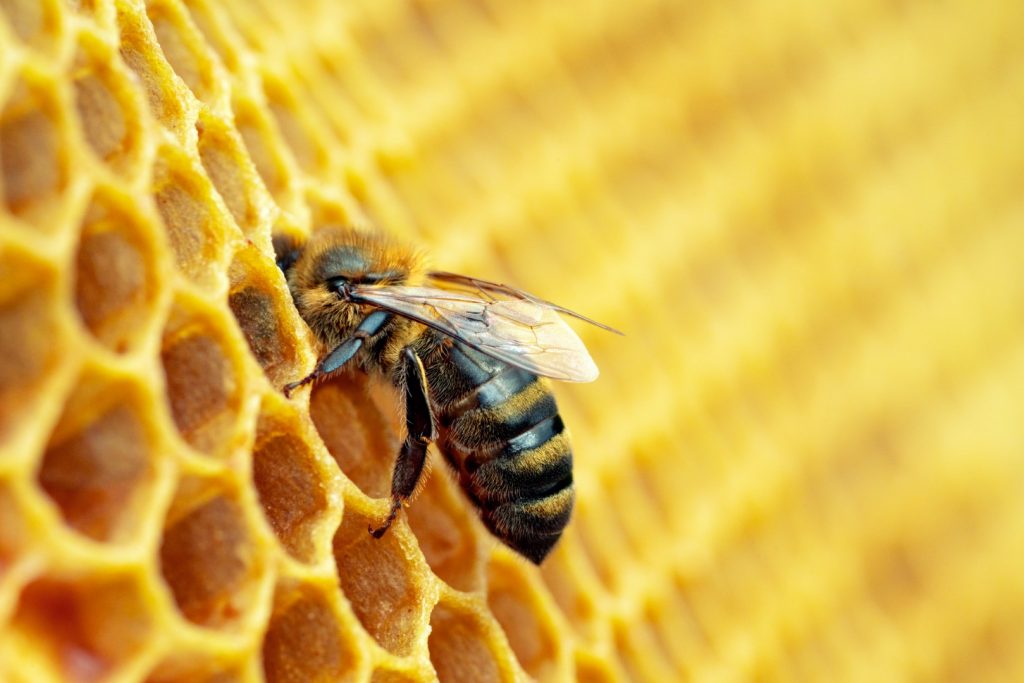Resource Library
Start Reading

Honey is a delicious treat enjoyed all over the world. But, as a sweetener, is honey bad for your teeth in the same way as processed sugar? Fortunately, the answer is no! Honey can be good for you, both in terms of your oral health and beyond. Read on to discover how to separate the facts from the fiction about your tooth and honey.
 All questions aside, honey is often touted as a miracle food because of all that it can do. First of all, it never goes bad. Honey can also:
All questions aside, honey is often touted as a miracle food because of all that it can do. First of all, it never goes bad. Honey can also:
But honey’s oral health benefits are where it really sweetens the deal, as the answers to these five questions show:
No. While honey has a high sugar content, it also contains several beneficial compounds like vitamins, minerals, and enzymes, which can help protect your teeth from decay.
 Honey can actually be used to treat gum disease. Its powerful antibacterial and antiseptic properties can help treat gingivitis as well as bleeding and receding gums. Up to 80% of adults will have periodontal disease at least once in their lives. The bacteria inhabiting an oral cavity cause inflammation, so the best way to prevent gingivitis is to kick out those bacteria.
Honey can actually be used to treat gum disease. Its powerful antibacterial and antiseptic properties can help treat gingivitis as well as bleeding and receding gums. Up to 80% of adults will have periodontal disease at least once in their lives. The bacteria inhabiting an oral cavity cause inflammation, so the best way to prevent gingivitis is to kick out those bacteria.
When you mix honey with water, an enzyme in honey called glucose oxidase produces hydrogen peroxide. The production of hydrogen peroxide is the primary reason for its antimicrobial activity. You can even place honey directly on the site of inflammation or infection in the mouth. Honey’s antibacterial properties flush out harmful bacteria.
By fighting the bacteria, honey reduces the amount of acid your mouth produces. Without that acid, bacteria can no longer produce dextran, which is essentially the “glue” that helps bacteria attach to the tooth surface.
No, you do not need to brush your teeth after eating honey. Honey helps combat the acidity in the mouth resulting from sugary foods, which can reduce plaque buildup. Honey is naturally sweet and has more vitamins and minerals than processed sugar, so it won’t damage your teeth like processed sugar.
No, honey does not cause plaque on your teeth. In fact, honey can help reduce plaque buildup by fighting the bacteria that produce acid in the mouth.
You can apply it to dry lips and sore corners of the mouth, and you can also mix it with water for a mouthwash.
 Yes. Honey is NOT made equal. The majority of honey sold in the U.S. is processed or refined. Like any processed food, it can contribute to health issues. Therefore, for the most benefit, learn how to distinguish health-saving honey from the potentially health-damaging.
Yes. Honey is NOT made equal. The majority of honey sold in the U.S. is processed or refined. Like any processed food, it can contribute to health issues. Therefore, for the most benefit, learn how to distinguish health-saving honey from the potentially health-damaging.
Tip 1: Stay away from honey that says “ultra-filtered.”
When honey is ultra-filtered, it is impossible to know the origin of the pollen, making it easier for the manufacturer to tamper with the honey. Honey can be smuggled into the U.S. illegally, preventing consumers from knowing what it contains. There’s no way to tell it isn’t diluted with corn syrup or much worse. For example, some honey from China has contained illegal antibiotics and traces of heavy metals when tested in a lab.
Tip 2: Know where your honey comes from.
Buying locally usually ensures that your honey is safe because local farmers won’t alter it. Honey that’s put directly into the jar for selling provides the best health benefits because all components are intact. You can also pay more for Manuka honey from New Zealand, which is famously superior honey with incredible health benefits. The FDA has even approved it for use in wound healing.
So, is honey bad for your teeth? No. Honey’s properties are beneficial to both your body and your dental health. But make sure you’re getting the most natural, whole honey that you can, which hasn’t been processed or refined in any way. Your gums and teeth will thank you!
However, you’ll need more than honey to protect your dental health. Luckily, Penn Dental Family Practice offers affordable, comprehensive care so you can maintain your beautiful, healthy smile. To learn more, click here and make an appointment today!
Also, find out what sets us apart from other practices in the Philadelphia area by downloading our helpful chart, “The Evidence You Need To Pick The Right Dentist.”